GIGABYTE Brix Ultra Small Form Factor PC & Projector Review
GIGABYTE BRIX Ultra Small Form Factor PC & Projector General Performance

I’m not surprised that the GIGABYTE Brix didn’t exactly break any records in the latest iteration of Futuremark 3DMark. It’s not meant to, but it certainly held it’s own scoring a respectable score of 39491 in the Ice Storm benchmark and a score of 3877 in Cloud Gate.
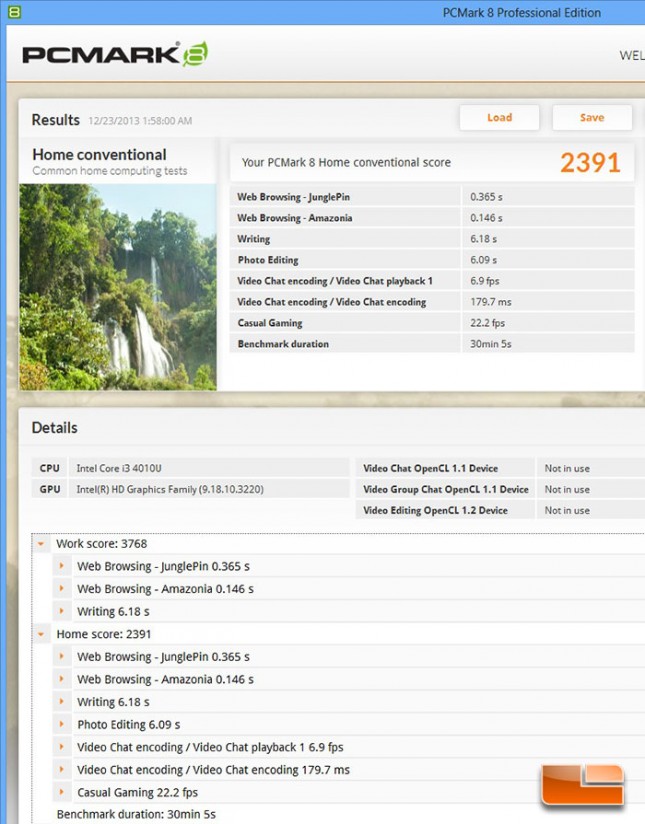
In PCMark 8 the GIGABYTE Brix scored 2391 overall with a casual gaming score of 22.2 frames per second. I wouldn’t rely on the Brix to rock the latest games like Battlefield 4, but it’ll play a few games with the eye candy turned off when you need your fix.
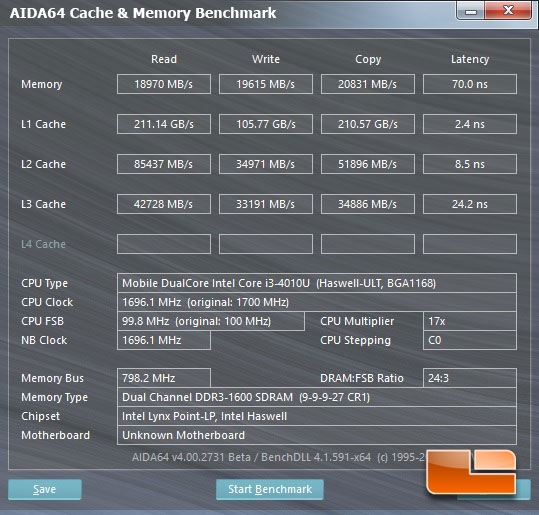
The GIGABYTE Brix uSFF PC was able to hit 18970MB/s read speed and 19615MB/s write speed in the AIDA64 memory benchmark.
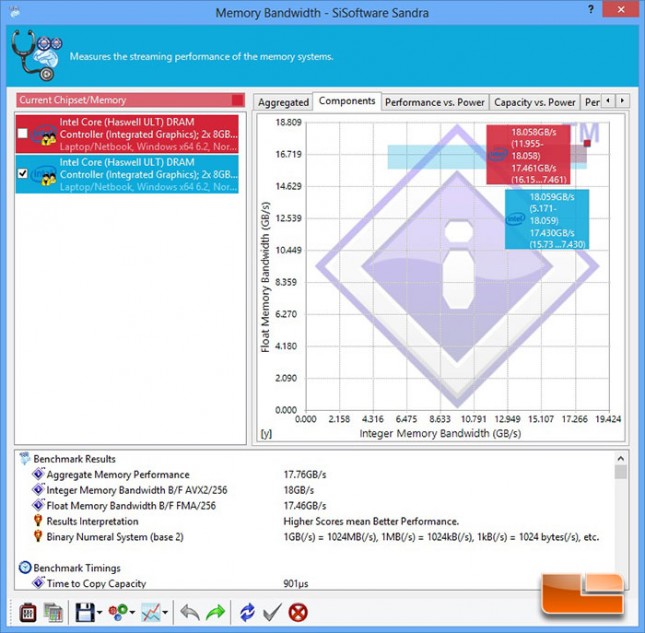
The GIGABYTE Brix and our Kingston HyperX memory were able to hit an aggregate memory bandwidth performance of 17.76GB/s in SiSoftware Sandra 2014.
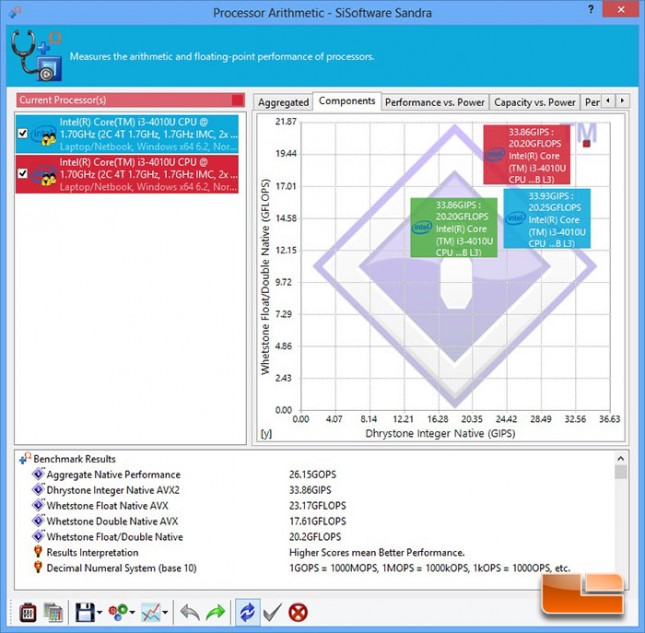
In the Sandra Arithmetic benchmark the GIGABYTE Brix hit an aggregate native performance of 26.15 GOPS.
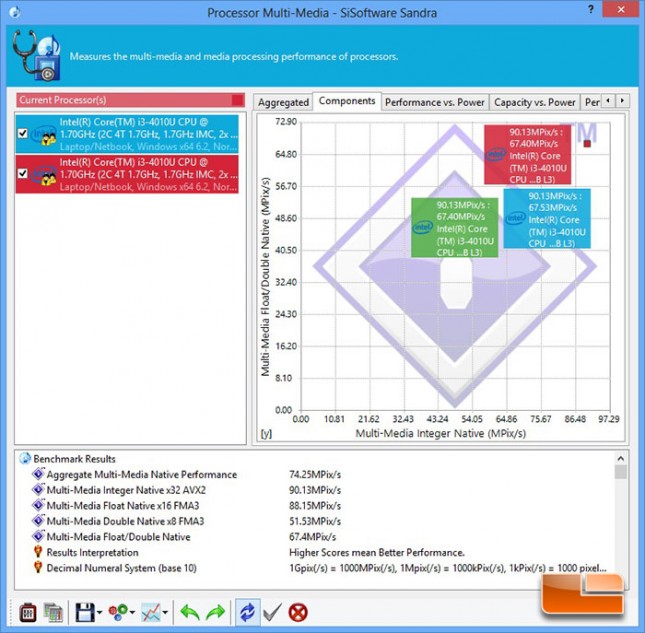
The Processor Multi-Media test in Sandra showed an aggregate Multi-Media Native Performance of 74.25MPix/s.
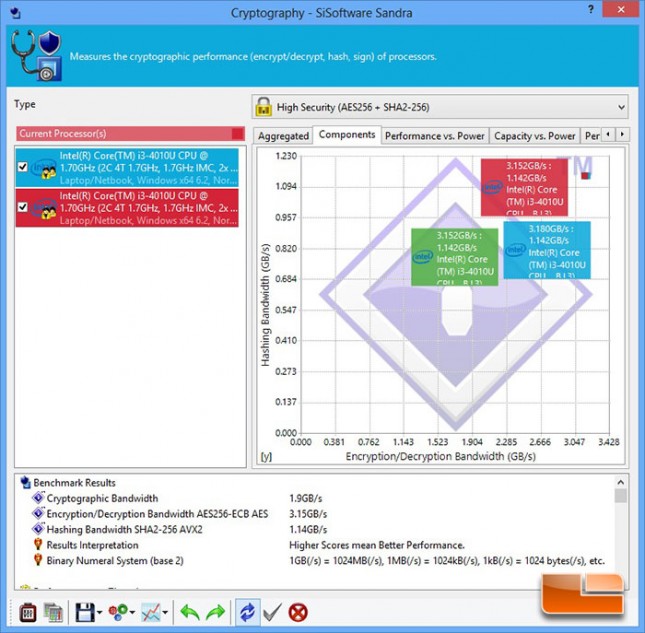
The Sandra processor Cryptographic bandwidth of 1.9GB/s.
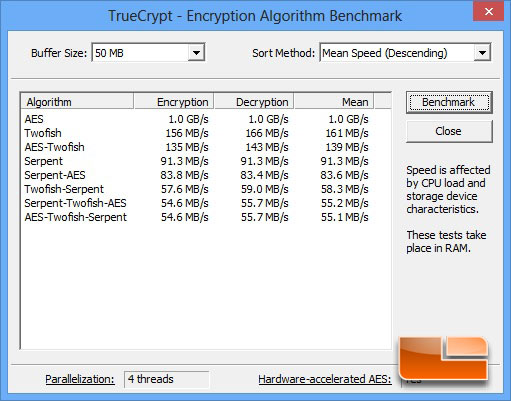
The benchmark within the TrueCrypt software showed the GIGABYTE Brix uSFF PC had a AES mean score of 1.0GB/s.
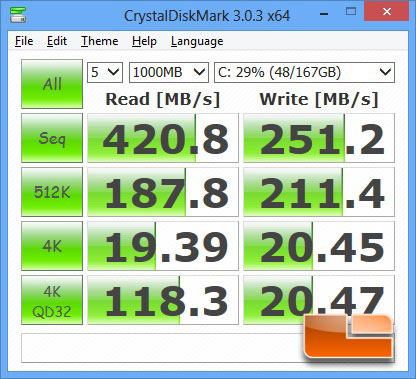
Giving the latest version of CrystalDiskMark 3.0.3 a quick run I found that there was plenty of speed when it’s coupled with the Intel SSD 530 Series that came out a few months ago. The Sequential read was cruising along at 420.8MB/s while the sequential write was hitting 251.2MB/s. Looking at the 4K random speeds the read hit 19.39MB/s and the write hit 20.45MB/s. Overall the Intel SSD 530 180GB mSATA drive and the GIGABYTE Brix is a great team.
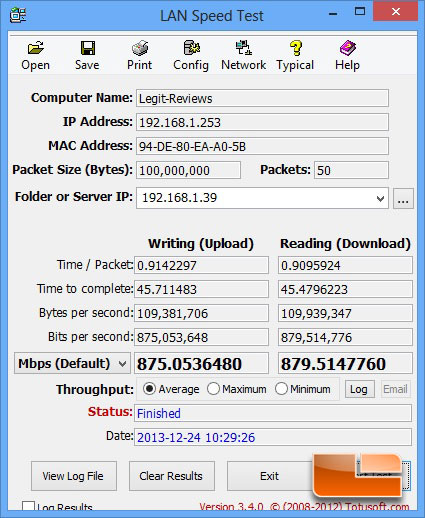
Curious about the network performance of the GIGABYTE BXPi3-4010 I fired up LAN Speed Test. Using the office desktop as our server via a Gigabit wired connection through our ASUS RT-AC660 router I ran tests on both the wired and WiFi. The first test above is the wired connection running 50 100MB packets. The average write/upload speed was solid at 875.054Mbps while the average reading/download was a hair faster at 879.514Mbps.
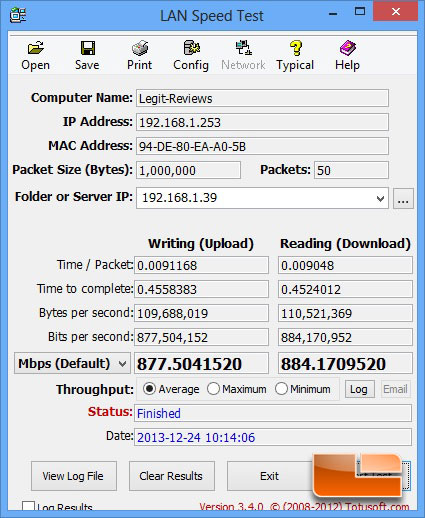
This test we still ran 50 packets though we reduced the size to 1Mb. We picked up a little bit of speed with the smaller packets. The writing/upload speed jumped ~2.5Mbps to 877.504Mbs and the average reading/download speed jumped to 884.171Mbps.
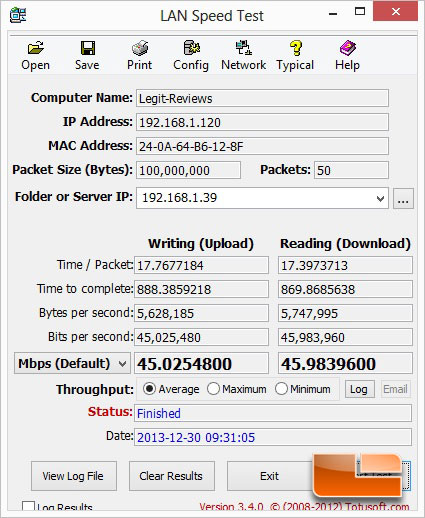
Firing up the GIGABYTE WiFi module within the BXPi3-4010 the average writing/upload hit 45.025Mbps while the reading/download hit 45.984Mbps.
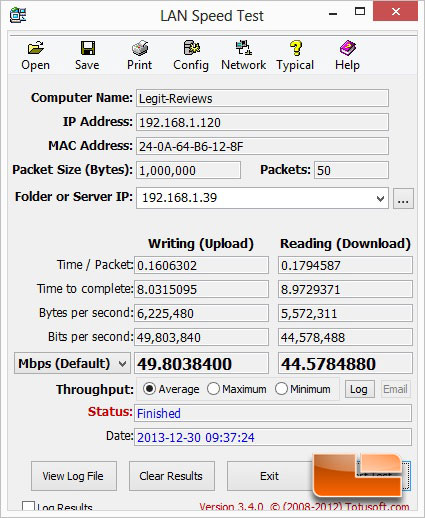
Dropping the packet size down to 1Mb we were able to pick up a little bit of speed on the upload, increasing to 49.804Mbps, though our download dropped a hair to 44.578Mbps.
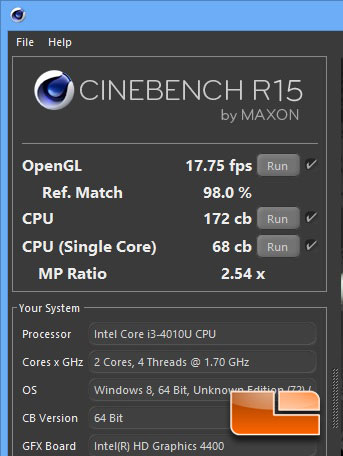
The Intel Core i3-4010U processor isn’t meant for raw power, but it’s able to get the job done well enough in the GIGABYTE Brix PC & Projector. In Cinebench R15 the Brix was able to hit 172cb across all cores and 68cb across a single core which isn’t to shabby from a dual core/four thread processor.
